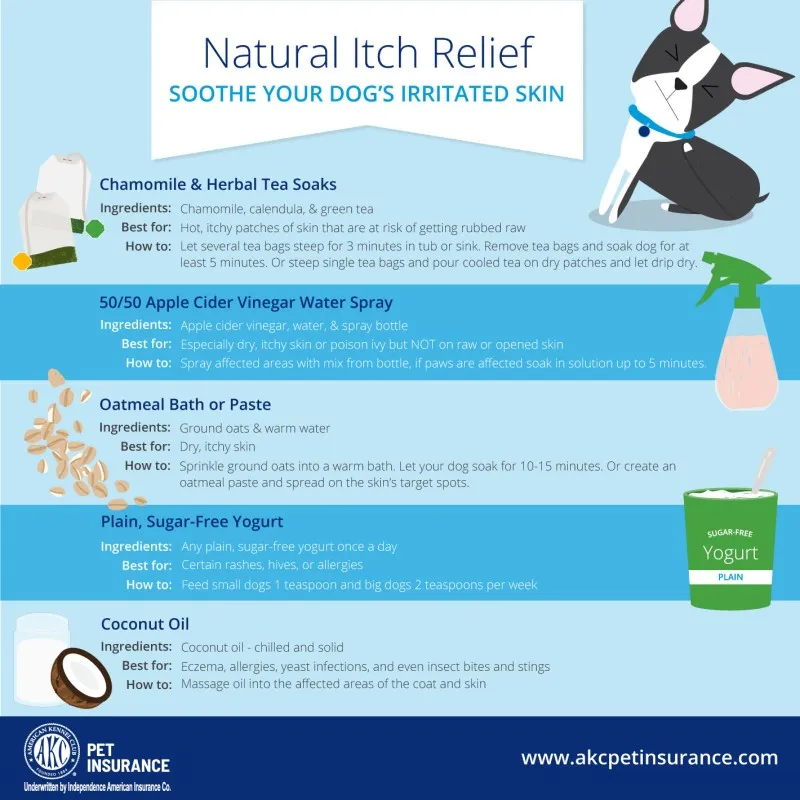Few things are as unsettling for a dog owner as watching their beloved companion suffer from persistent itching, licking, and chewing. Chronic skin irritation can significantly impact your dog’s quality of life and even lead to secondary infections or self-inflicted wounds. If you’re searching for an effective Dog Skin Allergy Treatment Natural approach to alleviate your furry friend’s discomfort, you’ve come to the right place.
While natural remedies can offer significant relief, it’s crucial to understand that severe or ongoing skin issues often require professional veterinary attention. Always consult a licensed veterinarian, especially if your dog’s itching is intense, has lasted for more than a few days, or if you notice any open sores, scabs, or hair loss. Natural solutions are best used as complementary treatments or for mild, temporary irritations, and as part of a holistic approach to your dog’s well-being. For a broader perspective on managing various health issues, you can explore general natural remedies for common dog ailments.
 Dog scratching intensely, illustrating skin allergy symptoms and the need for natural dog skin allergy treatment.
Dog scratching intensely, illustrating skin allergy symptoms and the need for natural dog skin allergy treatment.
Understanding Dog Skin Allergies and When to Seek Professional Help
Dog skin allergies can stem from a variety of sources, including environmental allergens (pollen, dust mites), food sensitivities, or even flea bites. Identifying the root cause is paramount for long-term relief. While many owners seek natural options for dog skin allergy treatment natural solutions, a vet can perform diagnostic tests to pinpoint the exact allergen.
Persistent scratching, redness, hot spots, and even changes in coat texture can all be signs of underlying allergies. If left untreated, these conditions can lead to bacterial or yeast infections, requiring stronger, prescription medications. Always prioritize a vet visit if you suspect a serious allergic reaction or infection.
Soothing Solutions: Natural Baths and Topical Applications
Harnessing the power of nature, several simple topical treatments can help calm irritated skin and provide temporary relief. These methods focus on reducing inflammation and moisturizing the skin barrier.
Chamomile and Herbal Tea Soaks
Chamomile, calendula, and green tea are renowned for their soothing, anti-inflammatory, and cooling properties, making them excellent choices for an itchy dog skin treatment. These herbal soaks are particularly effective for dogs with localized “hot spots” or widespread skin irritation that risks becoming raw from constant rubbing.
To prepare a full-body soak, fill your bathtub or sink with warm water and steep several herbal tea bags (chamomile, calendula, or green tea) for about three minutes. Remove the bags and let your dog soak in the calming bath for at least five to ten minutes. For smaller, specific itchy patches, steep one or two tea bags in approximately two cups of hot water. Once the tea has cooled completely, apply it directly to your dog’s skin, allowing it to air dry without rinsing for maximum benefit.
Apple Cider Vinegar (ACV) Spray
Apple cider vinegar is a time-tested natural remedy known for its antiseptic and antifungal qualities, which can be beneficial for dry, itchy skin and even conditions like poison ivy exposure. This makes it a potential component of your dog skin allergy treatment natural regimen. However, a critical warning: never apply apple cider vinegar to raw, broken, or open skin, as it will cause stinging and discomfort.
To use ACV safely, prepare a spray bottle with a 50/50 mixture of water and apple cider vinegar. This diluted solution allows you to target affected areas without over-saturating the fur. If your dog has walked through irritating plants like poison ivy, oak, or sumac, soaking their paws in this diluted solution for up to five minutes can help neutralize the irritants and provide relief.
Calming Oatmeal Baths
Oatmeal is a classic, gentle remedy for dry, itchy skin, and it’s perfectly safe for canines. Many hypoallergenic dog shampoos list oatmeal as a key active ingredient due to its ability to soothe and combat irritation. An oatmeal bath can be a highly effective home remedy for itchy dogs.
Begin by grinding plain, unflavored oatmeal into a fine powder. Sprinkle this powder into your dog’s warm bathwater. The colloidal oatmeal forms a protective barrier on the skin, typically providing relief within 10 to 15 minutes by cooling red, inflamed skin, regardless of the cause. As it’s non-toxic, it’s completely safe if your pet happens to lick some off during their bath. If a full bath is a challenge, an oatmeal paste offers a targeted alternative. Mix ground oatmeal with a small amount of water until you achieve a spreadable consistency. Apply this paste directly to bothersome spots, ensuring it reaches the skin, especially on longer-haired dogs, for optimal relief.
Dietary Support for Skin Health
Sometimes, skin issues are a reflection of internal imbalances. Incorporating certain foods into your dog’s diet can support their overall health, including their skin barrier and immune system.
Plain, Sugar-Free Yogurt
Feeding your itchy dog plain, unsweetened yogurt can offer numerous health benefits, particularly concerning gut health. Some skin irritations, including certain types of rashes, hives, and yeast infections, can originate from an imbalance in your dog’s digestive system. The probiotics in yogurt can help restore a healthy gut microbiome, which in turn supports a robust immune system and healthier skin, contributing to a holistic dog skin allergy treatment natural approach.
For small dogs, one teaspoon of yogurt, and for larger dogs, two teaspoons once a week, can significantly improve their overall gut health. Most dogs enjoy the taste of yogurt on its own, but it can also be easily mixed into their regular food to aid digestion. Before introducing yogurt or any new food, always consult your veterinarian to discuss potential risks or interactions, especially if your dog has existing health conditions or is prone to solutions for canine digestive issues.
The Power of Natural Oils: Coconut Oil
If you’ve been wondering, “What can I give my dog for itchy skin if other remedies aren’t quite working?” coconut oil might be the answer. Its high viscosity provides immediate physical relief, creating a natural barrier, while its inherent properties work to calm the skin.
Coconut oil is among the best natural oils for canine skin due to its viscous protective qualities, which is why it’s a key ingredient in many pet care products. It’s rich in medium-chain fatty acids (MCFAs) known for their antibacterial and antifungal properties, which can be immensely helpful in combating secondary infections often associated with allergies. As an excellent moisturizer, coconut oil can penetrate your dog’s fur to make direct contact with the skin, providing deep hydration. Dogs suffering from conditions like eczema, various allergies, yeast infections, and even insect bites and stings can all benefit from direct application of coconut oil. For related concerns about external parasites, consider reading more about [natural methods to remove fleas](https://dogcarestory.com/home-remedies-to get-fleas-off-dogs/).
For best results, store coconut oil in the fridge or a cool, dry place until it becomes completely solid. For quick relief to dry, irritated skin, gently massage the solid oil into your dog’s coat and onto the skin. Consistent application can lead to noticeable improvements in your dog’s coat quality and significant relief from persistent itching over time.
When to Seek Specialized Veterinary Care
While natural remedies are excellent for minor irritations and as supportive care, some situations demand immediate and specialized veterinary attention. If your puppy is experiencing severe itchiness, and you’ve already ruled out common causes like dietary issues or environmental irritants, a visit to a licensed veterinary dermatologist is strongly recommended as soon as possible.
A veterinary dermatologist possesses specialized equipment and expertise that a general practitioner might not have in-house, enabling them to conduct more advanced diagnostic tests. Consulting a specialist increases your chances of quickly uncovering the root cause of your dog’s itchiness, whether it’s complex food allergies, specific environmental triggers, or even certain psychological or behavioral issues that manifest as excessive itching. Conditions like chronic ear infections are often linked to underlying allergies, so understanding the cause is key to effective treatment for dog ear infections.
The dog skin allergy treatment natural options discussed above are generally safe for most dogs and mild skin issues. However, a proper diagnosis is the cornerstone of the most effective treatment plan for your dog’s itchy skin. Always consult your veterinarian before implementing any new treatment regimen, natural or otherwise.
 A woman gently comforting her dog, emphasizing the bond and importance of caring for canine skin health and allergies.
A woman gently comforting her dog, emphasizing the bond and importance of caring for canine skin health and allergies.
Conclusion
Managing dog skin allergies can be a challenging journey, but with a combination of informed care and natural remedies, you can significantly improve your dog’s comfort and quality of life. From soothing herbal baths and topical applications like apple cider vinegar and coconut oil to dietary support through plain yogurt, these natural solutions offer effective ways to address your dog’s itchy skin. Remember, these methods are best utilized for mild to moderate symptoms or as part of a veterinarian-approved treatment plan. Always prioritize a consultation with your vet for persistent, severe, or worsening skin conditions to ensure an accurate diagnosis and the most appropriate care for your beloved companion. Empower yourself with knowledge and provide your dog with the relief they deserve.
References
- American Kennel Club. (n.d.). The Itchy Dog: Scratching the Surface. Retrieved from https://www.akc.org/expert-advice/health/common-conditions/the-itchy-dog-scratching-the-surface/
- American Kennel Club. (n.d.). Can Dogs Eat Yogurt?. Retrieved from https://www.akc.org/expert-advice/nutrition/can-dogs-eat-yogurt/
- Dog Care Story. (n.d.). Home Remedies for Dogs. Retrieved from https://dogcarestory.com/home-remedies-for-dogs/
